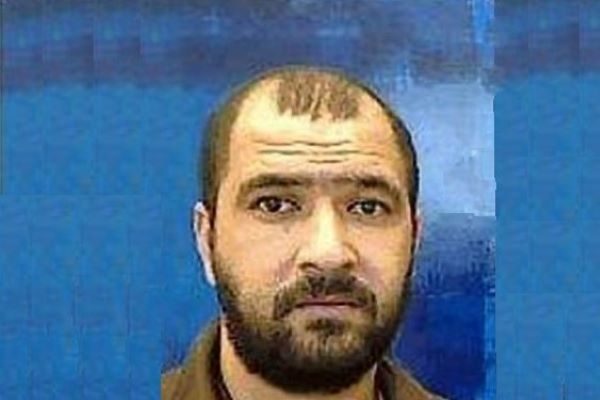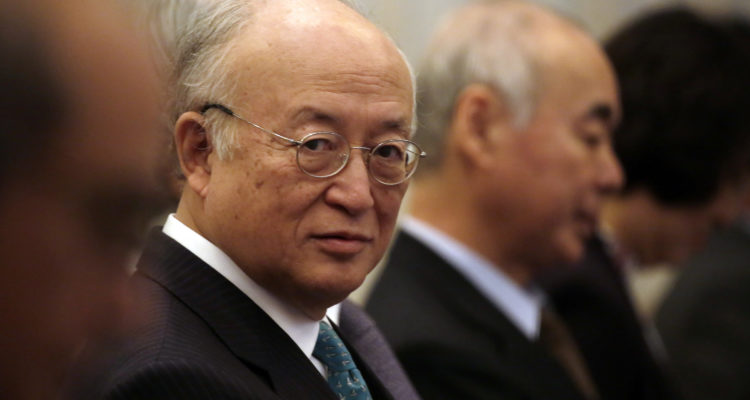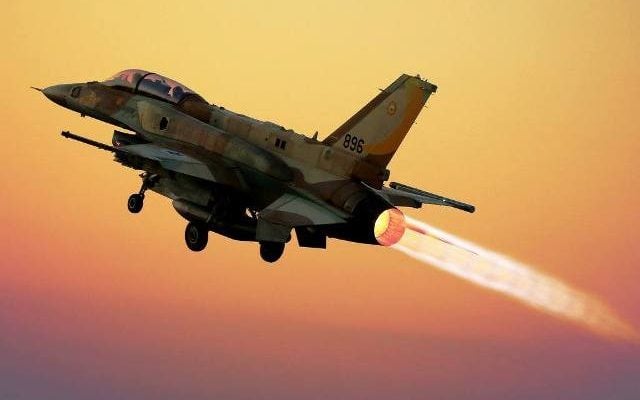Ξεχασμένα Και Μη!..
1.
TSK’dan Gelibolu’da dev tatbikat
TÜRK Silahlı Kuvvetleri’nce (TSK) Çanakkale’nin Gelibolu ilçesinde, ‘Tabur Görev Kuvveti Tam Birlik Atışlı Arazi Tatbikatı’ gerçekleştirildi.
KAYNAK: DHA
2.
Hepsi Türkiye’de konuşlu! İspanya’dan dikkat çeken Patriot kararı
İspanya Savunma Bakanlığı, Adana’daki Patriot füze savunma sisteminin süresinin 6 ay uzatılmasına onay verdi.
Suriye‘den Türkiye’ye yönelik saldırı tehdidi kapsamında NATO’nun Türkiye’yi koruma çabalarını desteklemek üzere Hollanda‘ya ait Patriot füze savunma sistemi 26 Ocak 2013’te Adana’da konuşlandırılmıştı.
3.
Yeni askerlik sistemi ilgili son dakika açıklaması! Tarih verdi…
AK Parti Grup Başkanvekili Mehmet Muş yeni askerlik düzenlemesiyle ilgili açıklama yaptı. Muş, ‘Meclis’te görüşmelere Salı günü yeniden başlayacağız. Haftaya Cuma’ya kadar teklifin geçmesini bekliyoruz. Celp sayısının 10 ya da 12 olmasını MSB düzenleyecektir.’ dedi.
AK Parti Grup Başkanvekili Mehmet Muş önemli açıklamalarda bulundu.
Muş, yeni askerlik düzenlemesiyle ilgili “Meclis’te görüşmelere Salı günü yeniden başlayacağız. Haftaya Cuma’ya kadar teklifin geçmesini bekliyoruz. Celp sayısının 10 ya da 12 olmasını MSB düzenleyecektir.”dedi.
Ordu Valisi’ne hakaret eden CHP’li İmamoğlu’na tepki gösteren Muş, “Ekrem Bey’in 82 milyondan özür dilemesi gerekmektedir. İmamoğlu, Beylikdüzü’nü 104 milyon borçla aldı, 457 ile devretti.” açıklamasında bulundu.
4.

“XAIΡETAI“!
Doğu Akdeniz’de yeni politika gerekli…
- 17.06.2019
Doğu Akdeniz’in enerji potansiyeli ve önemi konusunda belki de en çok yazı yazanlardan biriyim. 2017 yılında da “Türkiye’nin Enerji Ticaret Merkezi Olmasında Doğu Akdeniz’in Rolü” adlı bir rapor hazırlayarak Doğu Akdeniz hidrokarbon rezervlerini, bölge aktörlerinin işbirliklerini ve Doğu Akdeniz’de Türkiye’nin rolü ne olmalıdır konusunu detaylıca incelemiştik.
Raporun isminden de belli olduğu gibi Doğu Akdeniz, Türkiye’nin enerji arz güvenliği için önemli olduğu kadar Türkiye coğrafyasının kendisine sağladığı avantaj sayesinde bölgede en uygun rota olması nedeniyle ” Enerjide Ticaret Merkezi Olma” hedefi konusunda da önemli bir yere sahiptir.
Bu kapsamda Türkiye’nin Doğu Akdeniz’de oyun kurucu aktör olması, enerjide ticaret merkezi haline gelmesi ve bölge ülkeleri için cazibe merkezi olabilmesi için yeni bir “Doğu Akdeniz Enerji Stratejisine” çok ihtiyaç var.
Şu açıkça bilinmelidir ki, Doğu Akdeniz yalnızca enerjiden ibaret değil. Doğu Akdeniz’de, bulunacak hidrokarbon kaynakları ile bölgede birçok dengenin değişeceğini düşünüyorum. En önemlisi de Türkiye’nin enerji bağımlılığı kıskacında kurtulmanın da reçetesidir.
Bu nedenle yeni Doğu Akdeniz Enerji Stratejisinde bölgedeki gelişmelere tepki vermeden ziyade keşiften sondaja ve transfere kadar yapılacak çalışmalarla birlikte ayrıca var olan olumsuz algıların giderilmesi konusunda da ciddi çalışmalara ihtiyaç var.
TÜRKİYE, DOĞU AKDENİZ İÇİN NELER YAPMALI?
Öncellikle Doğu Akdeniz bölgesi için araştırma yapacak bir merkeze ihtiyaç var. Bu merkez araştırmalar yapacak ve politikalar geliştirecek. Cumhurbaşkanlığı ya da Enerji ve Tabii Kaynaklar Bakanlığı’nın uhdesinde ya da desteğinde olması gereken bu merkezde akademisyen, asker, diplomat, işadamı, deniz hukukçusu gibi uzman kişiler istihdam edilmeli.
Bu merkezde ilk olarak, Türkiye’nin bakış açısı anlatılmalı ve dış dünyada Doğu Akdeniz ile ilgili var olan olumsuz algının kırılması için çalışmalar başlatılmalı. Bunun için de üniversiteler, düşünce kuruluşları ve ilgili kurumların katkısıyla kapsamlı ve güçlü bir stratejik iletişim planı hazırlanmalı.
Diğer yandan, Doğu Akdeniz bölgesinde bugün en çok tartışma konusu olan ve bölge ülkelerini savaş noktasına getiren Kıta sahanlığı ve MEB sınırlarının belirlenmesi konusunda uluslararası hukuk alanında çalışma yapacak ve bunu dünyaya anlatacak uzman kişi ve akademisyenlerin katkısıyla güçlü bir ekip oluşturulmalıdır.
Türkiye’de ve dünyada enerji alanında faaliyet gösteren düşünce kuruluşları ile gerçekleşecek ortak çalışmalar kapsamında Türkiye üzerinden geçecek olası rotalar, TANAP ve TürkAkım projelerinde olduğu gibi, enerjinin başta AB pazarı olmak üzere dış piyasalara transferi ile ilgili tezlerin geliştirilmesi, bu durumun dünyaya daha iyi aktarılacağı bir zemini hazırlamış olacaktır.
Bu çabaların tüm tarafların kazanması için (kazan- kazan) son derece önemli adımlar olduğu gayet açıktır.
Öte yandan bölgede bulunan Müslüman ülkeler ile ortak iş birliği platformları kurulabilir. Bu ortamın oluşturulmasında İslam İşbirliği Teşkilatı da aktif rol alarak söz konusu işbirliklerinin ilerlemesinde koordinasyonu sağlamalıdır.
Son olarak, Türkiye’nin yaptığı petrol ve doğal gaz aramaları sonucunda olası rezervlerin bulunması halinde bölgede dengelerin değişeceği açıktır. Türkiye’nin oluşacak yeni denklemde kritik bir konuma gelmesi ve bunu koruması için bölgede sorun yaşanılan uluslararası enerji şirketleri ile beraber çalışmalar yapılmasının yolu denenmeli ve bu şirketlerle diyalog artırılmalıdır.
Bu konuda gerçekten yapılması çok gereken çok şey var…
YENİ ŞAFAK GAZETESİ
6.
F-35’lerin üreticisinden Türkiye açıklaması: ABD’nin emrini bekliyoruz
ABD ile Türkiye arasında iplerin gerilmesine sebep olan F-35’lerin üretici şirketi Lockheed Martin’in bir numaralı ismi Marillyn Hewson açıklamalarda bulundu. Financial Times’a konuşan Hewson, “Türk şirketler siparişler üzerine çalışmaya devam ediyor” dedi.

ABD–Türkiye–Rusya ekseninde başlayan S-400 ve F-35 krizleri devam ederken, F-35’lerin üreticisi Lockheed Martin‘den bir açıklama geldi. Lockheed Martin’in CEO’su Marillyn Hewson, Fransa‘nın başkenti Paris‘te düzenlenen bir etkinlikte Financial Times‘tan Sylvia Pfeifer‘a konuştu.
“TÜRKİYE’YE YENİ SİPARİŞLER İÇİN WASHİNGTON‘UN EMİRLERİNİ BEKLEYECEĞİZ”.
Türkiye’deki tedarikçilerin F-35’lerin siparişi üzerine çalıştığını dile getiren Hewson, CEO’su olduğu Lockheed Martin şirketin Türkiye’ye yeni sipariş verip vermeyeceği konusunda da net bir açıklama yapmadı. Hewson, “Lockheed, Türkiye’ye yeni sipariş verilip verilmeyeceği konusunda ABD hükümetinin yönlendirmesini izleyecek” dedi.
ŞİRKETTEN İKİNCİ AÇIKLAMA
Lockheed Martin F-35 programı yöneticisi Greg Ulmer ise, Ankara‘nın Rus yapımı S-400 hava savunma sistemini satın alma planı nedeniyle yaşanan anlaşmazlığa rağmen, Türk şirketlerinin F-35 parçaları üretmeye devam ettiklerini söyledi. Ulmer, ABD hükümetinin Türkiye’yi F-35 programından kademeli olarak çıkarmaya başlama planlarının bu yıl şirketin üretimini etkilemeyeceğini açıkladı.
7.
Bakan Akar, Rusya Savunma Bakanı ile telefonda görüştü
Milli Savunma Bakanı Hulusi Akar, Rusya Savunma Bakanı Sergey Şoygu ile telefonda görüştü.
Açıklamada, “Her iki Bakan tarafından Astana ve Soçi mutabakatlarına bağlılığın vurgulandığı görüşmede, bölgede barış, istikrar ve ateşkesin sağlanması için alınması gereken tedbirler hakkında görüş alışverişinde bulunulmuştur.” ifadesi yer aldı.
Son dakika haberine göre NATO Avrupa Yüksek Müttefik Komutanı Orgeneral Tod Wolters, “Türk-Amerikan ilişkileri kesinlikle pozitif durumda.” ifadelerini kullandı
NATO Avrupa Yüksek Müttefik Komutanı Orgeneral Tod Wolters, ABD-Türkiye ilişkilerine ilişkin açıklamalarda bulundu. Wolters konuşmasında Türk-ABD ilişkilerinin kesinlikle sağlam olduğunu belirtti.
Avrupa Yüksek Müttefik Komutanı Orgeneral Wolters, ABD Savunma Bakan Vekili Patrick Shanahan ile Türkiye Savunma Bakanı Hulusi Akar’ın gelecek hafta S-400 ve F-35 alımını konuşmak için bir araya gelebileceğini söyledi. Türk-ABD ilişkilerinin de kesinlikle sağlam olduğunu dile getirdi.
9.
Σχέδιο “Λίμνες”: Τρικυμία “εν κρανίω” και στρατολόγηση μέχρι και Τσάμηδων!
17/06/2019
Το σχέδιο «Λίμνες» υπήρξε προϊόν της ονειροφαντασίας του ηγέτη του ΚΚΕ Νίκου Ζαχαριάδη. Τέθηκε από αυτόν στην 3η Ολομέλεια και φυσικά, «δημοκρατικά», εγκρίθηκε. Η 3η Ολομέλεια πραγματοποιήθηκε στις 11 Σεπτεμβρίου 1947 στη Γιουγκοσλαβία και το σχέδιο ονομάστηκε «Λίμνες» λόγω των κοντινών Πρεσπών…
Το σχέδιο «Λίμνες» προέβλεπε τον τριπλασιασμό της δύναμης του «Δημοκρατικού Στρατού Ελλάδας» (ΔΣΕ), ώστε αν διαθέτει 60.000 μαχητές ως την άνοιξη του 1948 από τις 24.000 που διέθετε τον Σεπτέμβριο του 1947, δηλαδή εντός 6-7 μηνών! Δεδομένου ότι καθ’ όλη τη διάρκεια του βίου το ΔΣΕ δεν κατάφερε να στρατολογήσει, βίαια ως επί το πλείστον, λίγες μόνο χιλιάδες ανδρών και γυναικών, το σχέδιο ήταν εξ’ ορισμού ουτοπικό.
Αναφέρει το σχέδιο: «Πρώτο βασικός σκοπός. Αποκατάσταση εδαφικής ενότητας μεταξύ Μακεδονίας, Ηπείρου και Θεσσαλίας. Αυτό θα επιτρέψει να μεταφέρουμε στο νότο σοβαρές ενισχύσεις σε υλικά για να πετύχουμε την ανάπτυξη των δυνάμεων του ΔΣΕ στις περιοχές Θεσσαλίας, Ρούμελης και Πελοποννήσου και των σοβαρών επιχειρήσεών τους και έτσι να εξασφαλίσουμε τη μέγιστη δυνατή διασπορά των δυνάμεων του εχθρού και, κατά συνέπεια, να ανακουφίσουμε τις περιοχές της Κεντρικής και Δυτικής Μακεδονίας.
«Τρίτος βασικός σκοπός: Να αναληφθεί αποφασιστική επιθετική προσπάθεια για τη δημιουργία ελεύθερης περιοχής στο χώρο Κόνιτσα – Μέτσοβο, Γρεβενά – Τσοτύλι – Νεστόριο».
Επίσης ανά εδαφικό διαμέρισμα προβλεπόταν: «Ήπειρος. Μόνιμη εγκατάσταση στην περιοχή Παγωνίου και Λάκα Σούλι και εξασφάλιση ελέγχου στην αρτηρία Άρτα – Πρέβεζα – Γιάννενα. Θεσσαλία. Απώθηση του εχθρού από την κεντρική οροσειρά της Πίνδου (Κόζιακας – Άγραφα) και των εκεί θέσεων του ΔΣΕ.
«Ανατολική Μακεδονία – Θράκη. Αύξηση των δυνάμεων του ΔΣΕ μέχρι 10.000 άνδρες. Οχύρωση των δυνάμεων του ΔΣΕ στην ανατολική Μακεδονία και τέτοια διάταξή τους που να επιτρέπει τη δική μας κυριαρχία στο οροπέδιο του Ζιρνόβου. Αποκοπή της Θράκης με μόνιμη και σταθερή εγκαθίδρυση σοβαρών δυνάμεων του ΔΣΕ στον τομέα του όρους Χαϊντού.
Το σχέδιο πρόβλεπε, ακόμα πιο απίθανα πράγματα, όπως την απόκτηση και ανάπτυξη αντιαεροπορικών πυροβόλων και ακόμα χειρότερα παράκτιων πυροβόλων και καταδιωκτικών αεροσκαφών, ελαφρών σκαφών προς πόντιση θαλασσίων ναρκοπεδίων.
Από τα ανωτέρω φυσικά ελάχιστα έγιναν. Στις 23 Δεκεμβρίου 1947, συγκροτήθηκε «προσωρινή δημοκρατική κυβέρνηση», αλλά με πρωτεύουσα ένα χωριό, η οποία δεν αναγνωρίστηκε ποτέ από τις «δημοκρατικές σοσιαλιστικές χώρες». Την επομένη ο ΔΣΕ επιτέθηκε στην Κόνιτσα, αλλά τελικά ηττήθηκε, μη μπορώντας να εξασφαλίσει καν μια κωμόπολη ως πρωτεύουσα.
Αναφέρει σχετικά ο Τάκης Λαζαρίδης: “Καταστρώνουν μεγαλεπήβολα σχέδια (π.χ. σχέδιο «Λίμνες») για την δημιουργία μεγάλων εφεδρειών, την κατάληψη μεγάλων πόλεων και την απελευθέρωση εκτεταμένων περιοχών που ήταν αδύνατο να πραγματοποιηθούν και φυσικά δεν πραγματοποιήθηκαν ποτέ. Και το πιο αστείο στην υπόθεση είναι ότι ο Ζαχαριάδης εμφανίζει το σχέδιο «Λίμνες» ως προϊόν επιτελικής επεξεργασίας ενώ, όπως αποδεικνύεται, οι στρατιωτικοί ηγήτορες του ΔΣΕ δεν είχαν ιδέα…
“Προσπαθώντας απεγνωσμένα να πυκνώσουν, έστω και με Σλαβομακεδόνες, τις τάξεις του Δημοκρατικού Στρατού που είχαν απελπιστικά αραιώσει από τη συνεχή αιμορραγία, ξαναζεσταίνουν το «Μακεδονικό». Αδίστακτοι και αδιάφοροι για τις συνέπειες, στην 5η Ολομέλεια το Γενάρη του 1949 διακηρύσσουν:
«Δεν πρέπει να υπάρχει καμμιά αμφιβολία ότι σαν αποτέλεσμα της νίκης του ΔΣΕ και της λαϊκής επανάστασης, ο μακεδονικός λαός θα βρει την πλήρη εθνική αποκατάστασή του έτσι όπως την θέλει ο ίδιος, προσφέροντας σήμερα το αίμα του για να την αποχτήσει».
Παράλληλα ο ΔΣΕ μετατράπηκε σε τακτικό στρατό, έναν όμως τακτικό στρατό χωρίς σοβαρό πυροβολικό, με λίγα βαρέα όπλα, χωρίς εφεδρείες, με μονάδες υποεπανδρωμένες, άνευ αξιόλογων στελεχών και με σύνθεση όχι πάντα και τόσο «ελληνική».
Σε όλη τη διάρκεια του πολέμου από τις τάξεις του ΔΣΕ πέρασαν περίπου 100.000 άνδρες και γυναίκες μαχητές, κυρίως νεαρής, έως και εφηβικής ηλικίας. Από αυτούς η συντριπτική πλειοψηφία προερχόταν από βίαιη ή ακούσια έστω στρατολογία. Πιο φανατισμένοι ήταν οι Σλαβομακεδόνες που ανέμεναν «εθνική αποκατάσταση» από τον ΔΣΕ. Οι Σλαβομακεδόνες αποτελούσαν το 20% κατά μέσο όρο της δύναμης του ΔΣΕ, ανάλογα με την περίοδο. Επιχειρήθηκε και στρατολόγηση μουσουλμάνων της Θράκης αλλά δεν απέδωσε και για θρησκευτικούς λόγους.
Το χειρότερο ήταν ότι ο ΔΣΕ επιχείρησε να στρατολογήσει και Αλβανούς Τσάμηδες, τους σφαγείς των Ελλήνων, που είχαν εκδιωχθεί από την Ελλάδα από τον ΕΔΕΣ. Το πρώτο σχετικό αίτημα στα Τίρανα έγινε από τον Μάρκο Βαφειάδη το 1947, ακριβώς σε μια προσπάθεια συγκέντρωσης των μαχητών που προέβλεπε το σχέδιο «Λίμνες».
Ακολούθησαν και άλλα αιτήματα το 1948 που απορρίφθηκε και το 1949 που έγινε δεκτό από την κυβέρνηση αλλά όχι και από τους Τσάμηδες που δεν είχαν ξεπεράσει τον φόβο των Ελλήνων. Έτσι μόνο περί τους 150 εντάχθηκαν στον ΔΣΕ.
10.
Bakan Akar’dan ABD’ye gönderilen mektupla ilgili ilk açıklama
Milli Savunma Bakanı Hulusi Akar, “ABD’li muhatabımız tarafından bize gönderilen mektupla alakalı çalışmalarımızı tamamladık ve cevabımızı bugün öğle saatlerinde Amerikan tarafına teslim ettik. Biz müttefiklik ruhuna uygun hareket edilmesinden yanayız ve bu konuya azami hassasiyet gösteriyoruz” dedi.
Milli Savunma Bakanı Akar, Ruanda Genelkurmay Başkanı Orgeneral Patrick Nyamvumba’yı kabul etti. Genelkurmay Başkanı Orgeneral Yaşar Güler’in de katıldığı görüşme öncesi Bakan Akar, gazetecilerin sorularını yanıtladı. Bakan Akar, ABD Savunma Bakanı Vekili Patrick Shanahan’ın mektubuna verilen cevaba ilişkin soru üzerine şöyle konuştu:
“ABD’li muhatabımız tarafından bize gönderilen mektupla alakalı çalışmalarımızı tamamladık ve cevabımızı bugün öğle saatlerinde Amerikan tarafına teslim ettik. Karşılıklı saygı ve iş birliğimizin devam etmesi için üslup ve yaklaşıma hassasiyet gösterilmesinin gerektiğini daha önce de çeşitli şekillerde belirtmiştik. Biz müttefiklik ruhuna uygun hareket edilmesinden yanayız ve bu konuya azami hassasiyet gösteriyoruz. Birbirimize saygılı ve iş birliğimizi destekleyici olduğumuz sürüce herhangi bir rahatsızlığa, olumsuzluğa neden olmadan ülkelerimizle, Silahlı Kuvvetlerimizle alakalı konuları rahatlıkla görüşebiliriz, görüşmeliyiz. Çünkü bizim uzun süreli bir iş birliğimiz, müttefikliğimiz var. Dolayısıyla bütün çalışmalarımızda bu iş birliğine, müttefiklik ruhuna uygun hareket edilmesinden yanayız. Bu konuda biz Türkiye, Türk Silahlı Kuvvetleri olarak azami dikkat, hassasiyet gösteriyoruz.”
‘CUMHURBAŞKANI’MIZ TRUMP İLE GÖRÜŞECEK’
Türkiye ve ABD’nin uzun süreli ortak değerleri, çıkarları ve sorumluluklarının olduğunu belirten Bakan Akar, “Bu nedenle aynı şekilde önümüzdeki dönemde de görüşmelerimizin bu doğrultuda, bu inançta yapılmasını bekliyoruz. Önümüzdeki hafta ABD Savunma Bakan Vekili ile Brüksel’de NATO Savunma Bakanları Toplantısı çerçevesinde bir araya gelme fırsatımız olacak. Bu ayın sonunda da Osaka’da G20 Zirvesi çerçevesinde Sayın Cumhurbaşkanı’mız Sayın Trump ile görüşecek. Bu görüşmelerin de olumlu sonuçlanması için müttefiklik ruhuna uygun bir şekilde bize düşen ne varsa yapmaya çalışıyoruz” dedi.
Bakan Akar, Ruanda ile Türkiye arasında askeri ve güvenlik alanlarındaki ilişkilerin daha da artacağına inandıklarını belirterek, “Bir taraftan eğitim, iş birliği programları, tatbikatlar varken diğer taraftan da önümüzdeki dönemde savunma sanayii konusunda da ortak çalışmalarımız olabilir. Bu konularda Ruandalı dostlarımıza elimizden geldiğince destek olmaya, onlarla beraber çalışmaya gayret gösteriyoruz” diye konuştu.
Ruanda Genelkurmay Başkanı Orgeneral Nyamvumba ise gösterilen ev sahipliğinden duyduğu memnuniyeti dile getirerek, “Türkiye ile olan ilişkilerimizi geliştirmek istiyoruz” dedi.
11.
Θύελλα στην Αλβανία: Σκάνδαλο παρακολουθήσεων καίει τον Έντι Ράμα.
Πολιτικό σεισμό έχουν προκαλέσει στην Αλβανία οι αποκαλύψεις της γερμανικής εφημερίδας Bild για τις παρακολουθήσεις που εμπλέκουν τον πρωθυπουργό της χώρας Έντι Ράμα σε σκάνδαλο εξαγοράς ψήφων στην Περιφέρεια Ντίμπρα το 2016.
12.



















